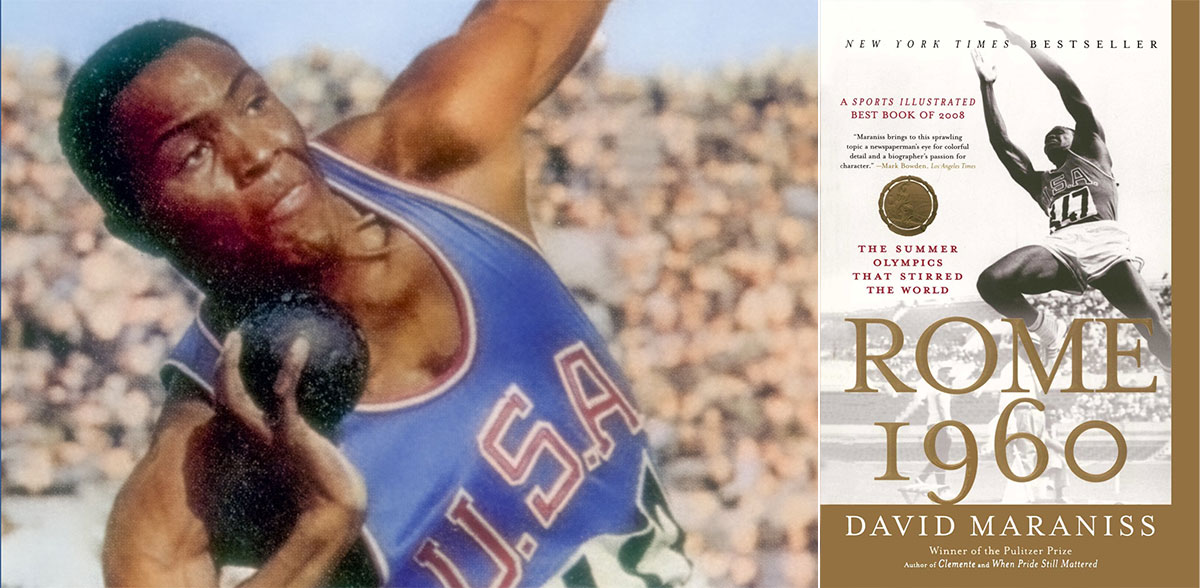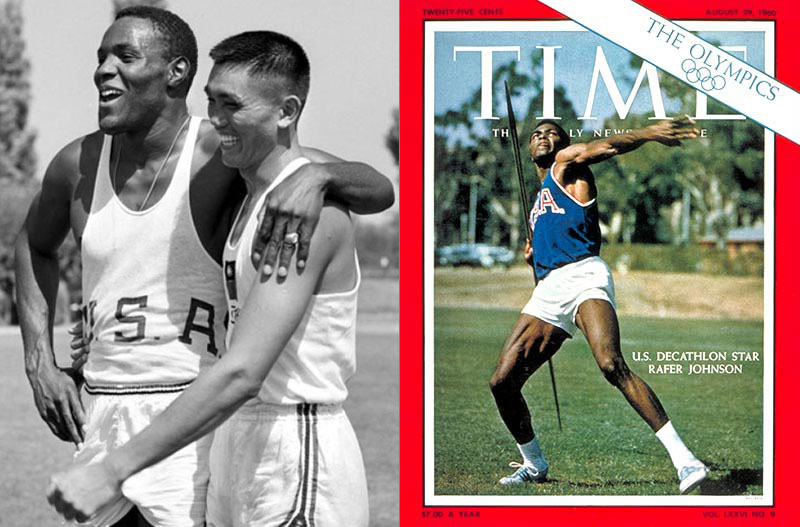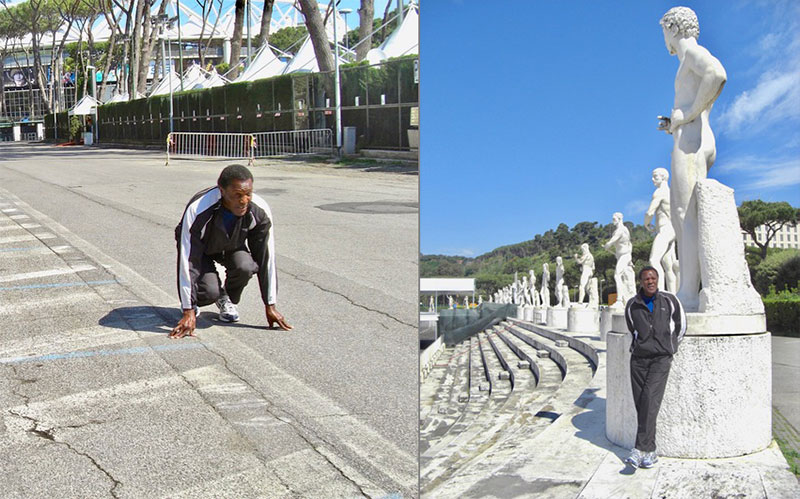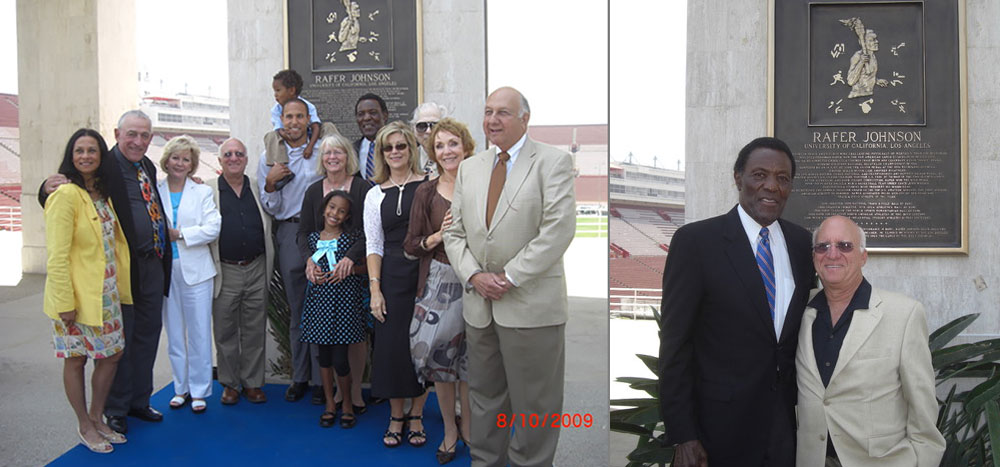
Rafer Johnson, the 1960 Olympics, and Brotherhood
Sixty years ago, Rafer Johnson (UCLA) seized the world stage at the first televised Olympic Games in Rome, winning a gold medal in the Decathlon. At the peak of the Cold War and racial tensions at home, he was admired worldwide for demonstrating exceptional endurance, determination, leadership, humility, and compassion.
Rafer was prominently featured in the book, “Rome 1960: The Olympics that Changed the World,” along with other legendary U.S. athletes including Cassius Clay, Oscar Robertson, and Wilma Rudolph, the first woman to win three gold medals.
Admired and respected by his teammates, Rafer was team captain and honored as the first African-American athlete to bear the flag for the U.S. Olympic team. He rose to the challenge of competition and leadership.
Brothers in athletic competition
In what was many consider the greatest decathlon ever, Rafer faced off against his friend and teammate, C.K. Yang, who represented Taiwan. When C.K. came to the United States to train at UCLA, Rafer assumed the role of “big brother,” even taking him home to meet his family. In their relationship as teammates and competitors, there was always a tug between the will to win and a deep friendship.

The 1960 Olympic decathlon was neck and neck between Rafer and Yang, and ultimately came down to the very last event. Rafer was conflicted, but ultimately triumphant. He said, ”I never in my whole life but that once competed against someone I had a little bit of ambivalence about beating… I was exhilarated that I won and totally depressed that C.K. lost. I had both feelings.”
In victory, Rafer demonstrated humility and camaraderie that truly represented the Olympic spirit.
Brothers for life
The competition in 1960 was very intense and exhausting for Rafer. After his gold medal win, he went back to the states and never saw Rome.

Almost 50 years later, Rafer’s classmate, Bill Roen, joined Rafer for a return to Rome. Rafer worked for a cruise line and was invited to give a Rome 1960 book lecture on a cruise from Barcelona to Rome. Bill helped to facilitate his trip down memory lane, “I got a van and a guide for the day to see all the Olympic venues and sites that Rafer had never seen.”
In 2009, Rafer had a plaque dedicated in his honor at the peristyle of the Coliseum. He was the Olympic torch bearer who lit the flame to open the 1984 games in Los Angeles. His Pilam brothers were there for him again. Said Roen, “we were honored to be part of the ceremony.”

For his brothers, Rafer was more than his athletic achievements and fame. Mitch Eggers explained, “as much as we enjoyed having him in our lives. We cared for Rafer, not because he was famous, but because of how one feels being with someone whose company we enjoy. A stranger came into our lives at the fraternity house in Westwood, and to all of us who knew him personally, he was not only our fraternity Brother, but our friend who left us with wonderful memories.”
The competitive spirit always burned in Rafer, as Mitch would attest, “One day, decades after we graduated, I played racket ball with Rafer, and I had the same experience as everyone else had who has ever competed against him. I lost.” But Rafer never lost himself, “As always he was a gracious winner and fun to be with.”
Rafer passed into the Chapter Eternal in 2020. To learn more about Rafer and his life, read his autobiography, The Best that I Can Be.
Article written by Shawn Mahoney (Temple University ’92)


